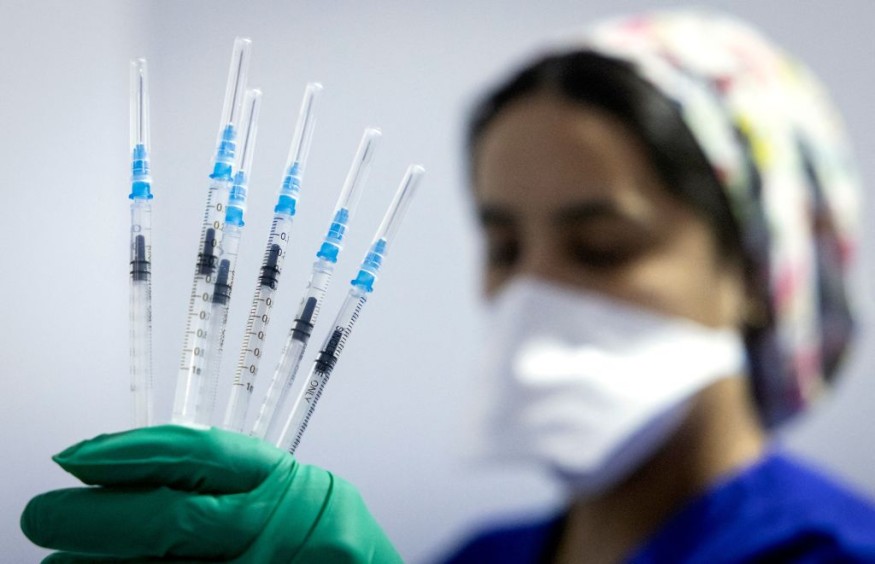A possibly significantly quicker sub-lineage of the Delta variation known as AY.4.2 has been identified by laboratories in eight regions. Healthcare officials in the U.K claim that they are examining an increasing number of incidents caused by such strain.
Yet, one occurrence of AY.4.2 has been detected in laboratories in California, Florida, Maryland, Massachusetts, Nevada, North Carolina, Rhode Island, and Washington region, as well as the Union territory of Columbia.
Though it may transmit quicker, medical experts discovered no indication of more chronic sickness due to variations and claim existing immunizations are still efficient against it.
The Existence of the Delta Sub-Lineage

For a few weeks, the sub-lineage managed to stay comparatively tiny ratio of propagating occurrences in the United States, but Nation 's healthcare authorities said they are stepping up effort to learn the latest Delta modified version.
"We possess departments which are frequently assessing the genetic records and searching for blips, an increment in a particular amount," says executive secretary of the United States state's SARS-CoV-2 Interagency Class, Dr. Summer Galloway.
Galloway, who works as the policy director on the CDC's clinical lab and testing response team, said that last month that laboratories in the United States were planning to expedite analysis to check if AY.4.2 may elude antigens from vaccinated People in the United States.
As said by Galloway, the procedure may take up to four weeks throughout research labs that would roll experiments with trivial pseudoviruses intended to imitate the variant's peculiar mutations.
Scientific researchers discovered mixtures of genetic variations in other sub-lineages of Delta termed AY.1 and AY.2, which, besides AY.4.2, were also referred to synonymously as Delta plus derivatives.
Ever since AY.1 decreased beyond 5% in Hawaii, the government restarted usage of the antibodies therapy. AY.1 has been found in less than 1% of occurrences nationally.
In the United Kingdom, AY.4.2 accounts for further over 11% of Delta mutation instances.
To local medical experts, the variation does not seem to have resulted in a 'substantial drop' in vaccination efficacy and spike in admissions, but may propagating quicker due to marginally greater biological infectiousness.
As per a representative for Centers for Disease Control and Prevention, AY.4.2 has accounted below 0.05% of prevalent infections in the country in weeks. The CDC believes that Delta variety and sub-lineages have accounted for about 100% of infections in the United States.
More Modified Strain of the Coronavirus Disease
Experts regularly re-categorized new sub-lineages in order to assist investigators monitor the infection grouped in specific places, even though the changes have no major influence on the variant's global health danger.
"Also relying on statistics, the dissemination edge appears to be lesser; it's not like Delta, which had a 50% to 60% edge on all preceding lineages as immediately as they stepped in," explains Dr. Karthik Gangavarapu, a research scientist with UCLA's Suchard lab.
Delta mutation sub-lineages such as AY.25, AY.3, and AY.44 also account for a sizable fraction of instances in the United States, albeit not always as they have a favorable position against other relatives.
"Projected rate of growth for AY.4.2 continue higher than for Delta, and the domestic subsequent overall damage for AY.4.2 patients is greater than other Delta infections," according to a study released Friday by the United Kingdom Agency for Welfare.
"We'll certainly acquire additional information in next month to see if there's that kind of spike in incidence that we find in the UK in the US currently," adds Gangavarapu.
Gangavarapu who headed Scripps Study's variation monitoring endeavor at Outbreak.info, which followed variations such AY.4.2 as it developed in the GISAID Proposal's international database of compiled infections.
© 2025 NatureWorldNews.com All rights reserved. Do not reproduce without permission.





